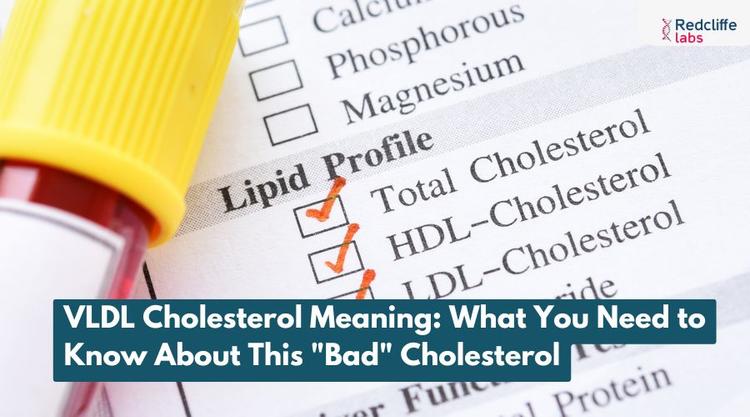Reasons for Increasing Cholesterol in Youngsters

Medically Reviewed By
Dr Sohini Sengupta
Written By Ankita Mishra
on May 28, 2024
Last Edit Made By Ankita Mishra
on Jul 19, 2025

When talking about cholesterol issues, the only image that comes to mind is that of older men and women who are in their 50s.
But is it the case? Are youngsters safe from increasing cholesterol?
Sadly, the answer is no. Many studies have shown that almost 7% of kids and more than 12% of adults have been suffering from high cholesterol. Unhealthy cholesterol levels have become a health threat for people in every age group. Especially these increasing numbers of youngsters having high cholesterol levels is a major cause of concern.
One can have high cholesterol levels for several different reasons, but being diagnosed with the condition can be very unsettling, especially at a young age.
If you have been diagnosed with high cholesterol and want to know more about the reasons for having high cholesterol and the ways you can overcome it.
But first, you need to understand what Cholesterol is and how it affects your body.
What is Cholesterol?
Cholesterol is a waxy, fat-like substance found in every cell of your body. It's crucial for building cell membranes, producing hormones (like estrogen and testosterone), and working towards fat digestion.
There are two main types of cholesterol:
- LDL (low-density lipoprotein): LDL is commonly called "bad" cholesterol because high levels can lead to plaque buildup in arteries, increasing the risk of heart disease.
- HDL(high-density lipoprotein): HDL is known as "good" cholesterol because it helps remove LDL from the bloodstream, reducing the risk of heart disease.
High cholesterol occurs when there is too much LDL in the bloodstream. It causes many heart-related diseases. There are multiple reasons why one might be suffering from high cholesterol. It is important to know the cause of your condition so that you can proceed with proper treatment.
Reasons for High Cholesterols in young adults:
Cholesterol issues are not limited to the elderly anymore; in the past years, it was seen that many in their 20s or even kids have been diagnosed with high cholesterol levels. There can be multiple reasons for one to be suffering from the condition at a young age. Let’s look into a few of them to get you a better idea:
- Unhealthy Diet:
Processed food has become a convenience for everyone, but these foods come at a price for your health. Processed food, red meat, and full-fat dairy products increase bad cholesterol levels in the body because they contain too much saturated and trans fat.
- Lack of Exercise:
Youngsters or kids living a sedentary lifestyle develop high cholesterol; working out regularly increases the level of HDL (good Cholesterol) in the body, while not indulging in any physical activity can increase the LDL (bad cholesterol) levels.
- Obesity:
With the advancement in technology, people have become prone to sitting and doing everything online, reducing their physical movement. This has led to an increase in obesity, which increases HDL levels in the body.
- Genetics:
Some individuals inherit genes responsible for increasing LDL levels in the bloodstream or genes that obstruct LDL's removal from the bloodstream.
- Smoking:
Smoking damages blood vessel walls and speeds up the hardening of arteries, leading to higher cholesterol levels and an increased risk of heart disease.
- Medical Conditions:
Certain medical conditions, such as diabetes, hypothyroidism, and kidney disease, can contribute to high cholesterol levels in young adults.
Most of these causes can be kept in check, and one can avoid suffering from high cholesterol conditions from a young age. Everyone knows that if the condition gets severe, it can increase the chance of suffering from any heart-related disease or condition.
Symptoms of High Cholesterol:
High Cholesterol does not have symptoms of its own. However, it causes issues in different body parts, especially the heart. A few disease conditions are mentioned below, which, when experienced, can be due to high cholesterol:
- Coronary Artery Disease (CAD):
High cholesterol can lead to plaque buildup in the arteries, restricting blood flow to the heart. Symptoms of CAD include chest pain (angina), shortness of breath, and, in severe cases, heart attacks.
- Peripheral Artery Disease (PAD):
Similar to CAD, plaque buildup can occur in other arteries, typically those supplying the legs and feet. This can lead to leg pain, numbness, and difficulty walking.
- Transient Ischemic Attacks (TIAs) and Strokes:
Plaque in the arteries can also affect blood flow to the brain, increasing the risk of TIAs (mini-strokes) or strokes. Symptoms include sudden weakness or numbness in the face, arm, or leg, difficulty speaking, and vision changes.
These are some of the major heart conditions that can be caused if LDL is not kept in check. This is why getting regular checkups is important. These checkups help you keep track of your health; if there is any abnormality, you can take extra care of it.
Also Read: https://redcliffelabs.com/myhealth/food-and-nutrition/how-and-when-to-have-cholesterol-checked/
How to Control Increasing Cholesterol?
Controlling increasing cholesterol levels involves adopting a healthy lifestyle and, in some cases, may require medication. Here are some effective ways to manage and control cholesterol:
- Healthy Diet: Focus on a diet rich in fruits, vegetables, whole grains, and lean proteins. Limit saturated fat, which is mostly found in red meat, full-fat dairy products, and processed foods. Incorporate foods high in soluble fiber, such as oats, beans, lentils, and fruits like apples and pears, as they can help lower LDL cholesterol levels.
- Regular Exercise: Aim for at least 150 minutes of moderate-intensity aerobic exercise or 75 minutes of vigorous-intensity exercise per week. Exercise helps raise HDL cholesterol levels and can lower LDL cholesterol levels.
- Maintain a Healthy Weight: Even a small amount of excess weight can help improve cholesterol levels. Focus on gradual weight loss through a combination of diet and exercise.
- Quit Smoking: Smoking lowers HDL cholesterol levels and damages blood vessel walls, making it harder for cholesterol to be removed from the bloodstream. Quitting smoking can improve cholesterol levels and overall heart health.
- Limit Alcohol Intake: Excessive alcohol consumption can raise triglyceride levels and contribute to high cholesterol. Limit alcohol intake to moderate levels.
- Medication: For some people, lifestyle changes alone may not be enough to control cholesterol levels. Your healthcare provider may prescribe statins, cholesterol absorption, or PCSK9 inhibitors to help lower cholesterol levels. Remember, these medications are only to be taken when your doctor has prescribed them.
By incorporating these lifestyle changes and, if necessary, medication into your routine, you can effectively control increasing cholesterol levels and reduce your risk of heart disease. Always consult your healthcare provider before making any lifestyle changes or want to take any medications.
Conclusion:
High cholesterol is a cause of concern, especially among young adults, and there are multiple steps you can take to manage and lower your high cholesterol levels. Understanding why you are going through the condition so that you can take all the necessary precautions and steps to keep your LDL in control can help you take care of your health in the long run. Remember, it is important to consult with your doctor and follow their advice above everything else. Everybody is different; if a treatment method or medication works for you, it does not mean it also works for others. Doctors provide advice based on your individual medical history.
Get Tested at Redcliffe Labs!
You can take the lipid profile test to keep track of your cholesterol levels; it is important to keep your health in check. You can get your blood test done from Redcliffe Labs. We at Redcliffe Labs provide a home sample collection facility, so you don’t need to wait in long queues for the test. More than 50,000 healthcare providers trust our Labs to give accurate results in a stipulated time frame.
So, what are you waiting for?
Book your tests from the website or download the Redcliffe Labs app!



